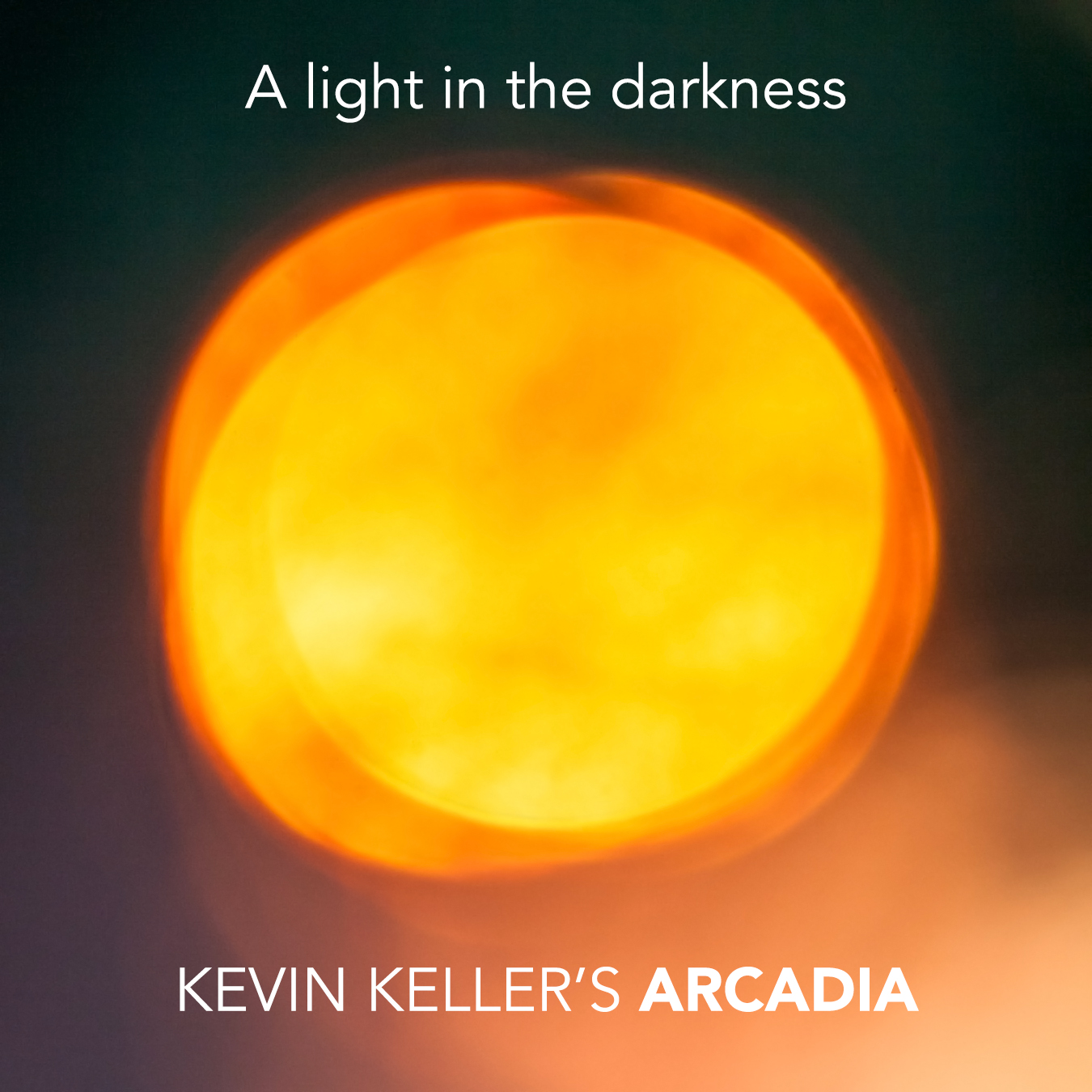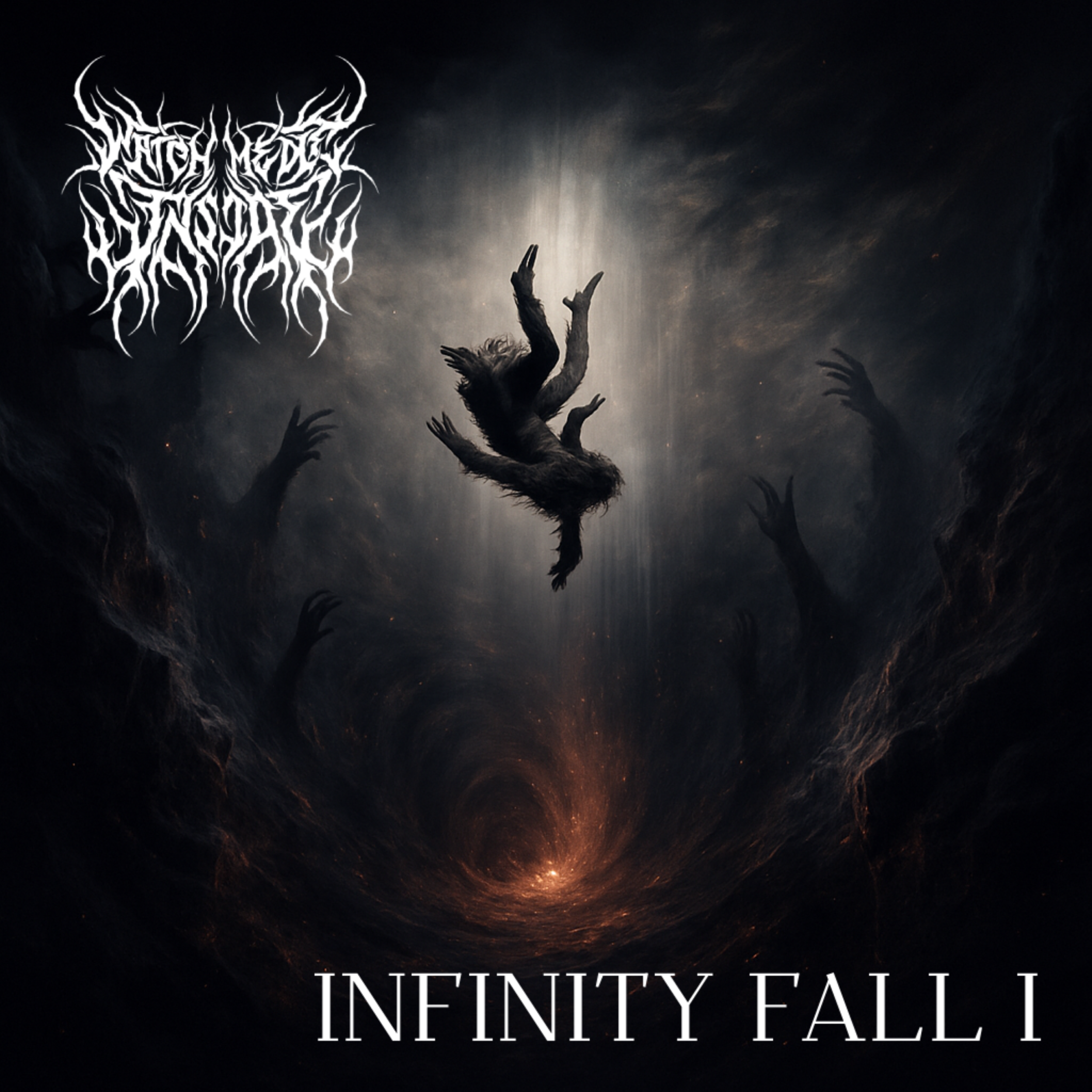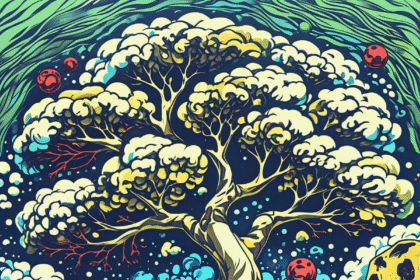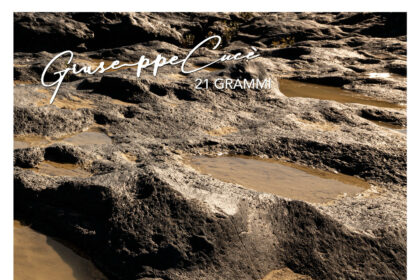Kevin Keller has long been celebrated for his ability to bridge the ancient with the modern, blending early music traditions with ambient soundscapes that shimmer with intellect and heart. With “Arcadia,” the sequel to his 2023 release Evensong, Keller takes his listeners deeper—into the afterlife itself. Where Evensong explored life from conception to death and hinted at what lay beyond, “Arcadia” dares to complete the narrative. It is a luminous, often haunting meditation on the soul’s journey through darkness, light, and eventual transcendence. The album is at once scholarly and deeply emotional, carefully researched in its medieval inspirations yet strikingly contemporary in its execution.
The record’s atmosphere owes much to its collaborators, with a stellar ensemble breathing life into Keller’s vision. Sofía Campoamor, whose ethereal vocals lead the project, is joined by sopranos Katherine Wessinger, Danya Katok, and Wendy Baker. Their voices weave together like strands of light, evoking the plainchant traditions of Hildegard of Bingen and the layered textures of Notre Dame organum. Meanwhile, Sarah Zun (violin), Angela Pickett (viola), and Laura Metcalf (cello) provide the live string foundation, their resonance cutting through the ambient wash with moments of profound intimacy. Recorded by Robert L. Smith at Reservoir Studios in New York City, with mixing also handled by Smith and mastering by Chris Frasco in Nashville, the production feels simultaneously vast and close, allowing listeners to be immersed in cathedral-like reverberation while still catching the subtle intake of breath between vocal phrases.
The journey begins with “Et vidi caelum” (“And I saw the sky”), a track that sets the stage with serenity. Soft drones, distant echoes, and reverent plainchant vocals open the gates to Keller’s imagined afterlife. The music is patient, unhurried, almost like the slow opening of one’s eyes in a dream. Yet by the second track, “Et nox ultra” (“And night is over”), the tempo shifts dramatically. Here, Keller leans into the rhythmic intensity of Notre Dame-style organum, pairing pulsating electronics with chant-like vocal lines. It’s one of the most striking fusions on the album, a piece that feels ancient and futuristic at once—proof of Keller’s talent for respecting tradition while crafting something unmistakably his own.
The record’s centrepiece lies in its emotional depths. “Me solum me invenio” (“I find myself alone”) is built around one of Campoamor’s original plainchant melodies, which hovers delicately over Keller’s ambient textures. There’s a stark beauty here, a moment of solitude and self-revelation. But the true descent comes with “In tenebris” (“In darkness”), where shifting modulations and swelling layers carry the listener into an ominous climax. As the textures thicken, a voice rises in the distance with the chilling words: “…but I will find a way…” This track encapsulates the heart of “Arcadia“—the confrontation with despair and the fragile determination to emerge from it.
From the shadows, Keller steers us toward landscapes both mythic and cinematic. “Mare, littus, flammam” (“Sea, shore, flame”) begins with a cello that resembles the low call of a foghorn across dark waters. Its heartbeat-like pulse conjures the peril of being adrift, only to give way to a song that feels like a folk ballad sung across centuries. This transition leads directly into “In equo fugit” (“She flees on horseback”), the album’s climax. Beginning in quiet mystery, the piece builds momentum until it bursts into a galloping rhythm, embodying both urgency and liberation. One can almost see the rider silhouetted against the moonlight, racing toward dawn.
The promise of that dawn is delivered in “Et lux perpetua” (“And eternal light”), a track suffused with radiance. Campoamor’s voice, treated with subtle effects, floats above the strings like sunlight breaking through clouds. There’s a grandeur here reminiscent of U2’s most transcendent moments, though filtered through Keller’s restrained, spiritual sensibility. It feels like the resolution of musical tension and the narrative arc itself. The darkness has been traversed, the soul has fled, and now eternal light beckons. Yet Keller refuses to end in triumphal excess. Instead, he closes with “Veni intus” (“Come inside”), a lullaby that lowers the listener gently into peace. The sopranos sing like a mother’s embrace, delivering us not into spectacle, but into rest.
Influences permeate Arcadia at every level. The plainchant melodies, some written by Keller and others by Campoamor, are steeped in the spirit of Hildegard of Bingen. The Notre Dame organum textures nod to Léonin and Pérotin, composers of the 13th century whose innovations shaped the Western canon. Yet, crucially, these are not museum pieces. Keller and Campoamor composed original Latin texts, deliberately choosing the timelessness of the language to preserve the universality of the music. By weaving the past into the present, “Arcadia” avoids being a mere homage and instead becomes a living continuation of a tradition, reframed through modern instrumentation and production.
The recording process itself underscores this blend of improvisation and structure. Keller first worked with Campoamor in his own studio, creating a sonic bed of organ, synthesisers, and guitar before handing her original Latin texts. Campoamor would improvise vocal lines, refining them with Keller until they achieved the desired form. These improvisations were then transcribed and scored for the studio sessions at Reservoir Studios. Post-production involved subtle digital processing of Campoamor’s voice, creating its signature floating quality—like something between a chant and a dream. This hybrid process—half ancient craftsmanship, half modern technology—is at the core of Arcadia’s power.
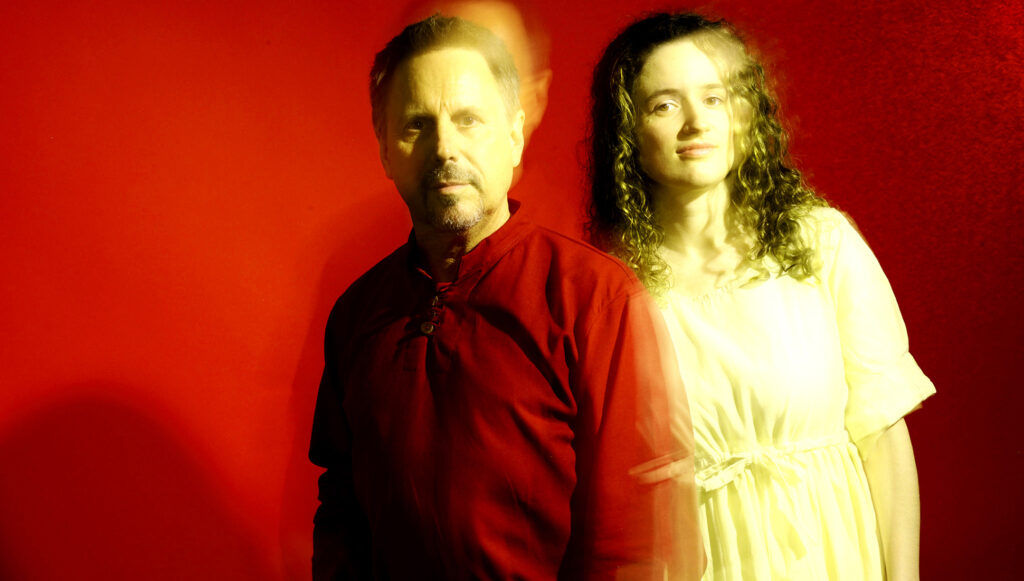
Beyond its technical marvels, what makes “Arcadia” unforgettable is its narrative resonance. By envisioning the afterlife as a journey through both peril and peace, Keller taps into a universal longing: the need to find meaning in endings. The album reminds us that grief, isolation, and fear are part of the passage, but so too are light, rest, and transcendence. Its careful balance of darkness and radiance mirrors our own experiences of loss and hope. In this way, “Arcadia” doesn’t simply depict an imagined afterlife, but becomes a metaphor for human resilience and faith in the possibility of peace.
The final credit belongs, of course, to Keller himself, who composed, produced, and directed the vision with quiet mastery. But it’s equally important to acknowledge those who shaped its sound: Campoamor and her fellow vocalists, the string ensemble, Robert L. Smith’s engineering, Peter Jensen’s assistance, Deeba Montazeri’s associate production, and Chris Frasco’s mastering. Even the visual art—from Santiago Urquillo’s cover to Yana Iskayeva’s inner photography—reinforces the sense of mystery and transcendence that the music conjures. “Arcadia” is a complete work of art, one that honours the medieval past while offering something profoundly new for modern ears. With this release, Kevin Keller has created not only a sequel to Evensong but a masterwork in its own right—an invitation to journey, to dream, and to finally rest in eternal light.
For more information, follow Kevin Keller:
Website – Facebook – Spotify – YouTube




